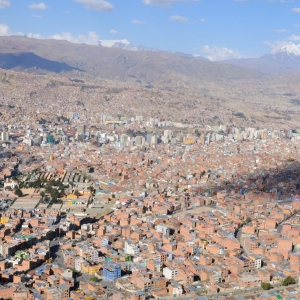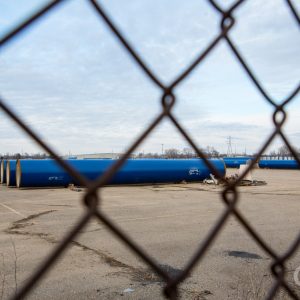Federal Water Tap, January 18: CARES Act Funds Can Be Used to Provide Running Water
The Rundown
The Treasury Department clarifies use of CARES Act funds for water infrastructure. The White House tries to block funding for dam repairs using its rescission authority. GAO report highlights the rising cost of NASA’s environmental cleanup liabilities. The EPA releases data on enforcement and compliance in 2020 and rejects a petition to force a chemical company to conduct PFAS health testing in North Carolina. The Bureau of Reclamation approves redirecting water rights from the Central Arizona Project canal. The EPA sets the date that revised rules on lead in drinking water go into effect. HUD changes its rules for inspecting and assessing the adequacy of public-assistance housing. USGS researchers analyze pesticides in groundwater used for public water supply. And lastly, average temperature and precipitation benchmarks in the country will be updated this spring, NOAA says.
By the Numbers
$1.9 billion: Estimated cost of cleaning up releases of toxic chemicals to soil, water, and physical property at 14 NASA facilities. The cost of these liabilities has grown by 61 percent since 2014, largely due to groundwater and soil contamination at Santa Susana Field Laboratory, in California, where rocket engines were tested. (GAO)
$5.1 billion: Federal low-interest loans that will be available to 55 water and sewer infrastructure projects. (EPA)
News Briefs
White House Puts Some Budget Items on Hold
Just before leaving office, President Trump used his rescission authority to order Congress not to spend $27.4 billion that was authorized in the 2021 budget that was passed in December.
With a Democratic Congress, it is unlikely that the programs will be cut. But it will delay the funding by 45 days.
The rescission request targets a new Army Corps financing program for repairing aging dams. The program was authorized in 2014, but it received funding for the first time in the 2021 budget that will allow it to make low-interest loans worth up to $950 million.
The White House was not impressed.
“The Army Corps should focus on building, not banking,” the rescission request states.
CARES Act for Water
The Treasury Department published guidance that directs state, local, and tribal governments on how they can use the $150 billion they received from the CARES Act.
The guidance says that recipients of the funds can use them to provide households with access to running water, which is a prevailing concern in the Navajo Nation. Those funds must be used by December 31, 2021.
Shifting Central Arizona Project Water from Farms to Cities
The Bureau of Reclamation approved a request from the state of Arizona to redirect the rights to use Colorado River water delivered through the Central Arizona Project canal.
The state is shifting 46,629 acre-feet of water away from agricultural use. Three-quarters will go to municipal use, and the remainder will be for industrial purposes, especially mining projects.
Though the rights are being transferred to cities, the water retains its place at the back of the line in the state’s seniority system. That means these rights are at risk of being curtailed during a shortage on the river. The Arizona Department of Water Resources intends for the reallocation to help with groundwater overdrafts in the central region of the state.
PFAS Testing Request Denied
The U.S. Environmental Protection Agency denied a request to require the chemical company Chemours to study the health and environmental effects of communities exposed to drinking water contaminated by PFAS.
Six North Carolina environmental and health groups petitioned the EPA to force Chemours to fund studies into 54 chemicals that were produced at its Fayetteville facility.
In rejecting the petition, the EPA claimed that the groups did not present enough evidence to show that there is insufficient scientific data on each of the 54 chemicals.
Studies and Reports
EPA Enforcement Data
The EPA released data on enforcement and compliance actions during fiscal year 2020.
The number of inspections dropped dramatically, due in large part to the pandemic. Still, inspections decreased throughout the Trump administration.
New environmental crime cases rose for the third year after a steep decline. The number of civil enforcement cases declined each of the Trump administration’s four years.
USGS Assesses Pesticides in Groundwater
The U.S. Geological Survey published research on pesticide concentrations in groundwater used for public water supply.
The researchers analyzed water samples for 109 pesticides. They frequently found evidence of the chemicals, especially in shallow wells, but in low concentrations.
On the Radar
New Climate Normals
In a few months, what counts as “average” temperature and precipitation in the United States will be changing.
These averages, called climate normals, are based on 30-year measurements that are updated once a decade. The current normals are from 1981-2010.
Russell Vose of NOAA said that the 1991-2020 climate normals are tentatively scheduled to be released in May.
When that happens, the average temperature for many places should increase since the last decade was quite warm.
Lead and Copper Rule Revisions Finalized
The EPA published the revisions in the Federal Register. They go into effect on March 16.
In context: EPA Revises Rules for Lead in Drinking Water
HUD Housing
The Department of Housing and Urban Development is changing its rules for inspecting and assessing public-assistance housing.
The updated language states that a HUD unit must have “hot and cold running water, including an adequate source of safe and potable water.”
Defining “safe” will be the goal of a future rulemaking. HUD is seeking public comments on several questions that will inform the rule: how to define “safe”; how to monitor for it; and what should be reviewed during a physical inspection of the unit.
Comments are being accepted through March 15.
Federal Water Tap is a weekly digest spotting trends in U.S. government water policy. To get more water news, follow Circle of Blue on Twitter and sign up for our newsletter.
Brett writes about agriculture, energy, infrastructure, and the politics and economics of water in the United States. He also writes the Federal Water Tap, Circle of Blue’s weekly digest of U.S. government water news. He is the winner of two Society of Environmental Journalists reporting awards, one of the top honors in American environmental journalism: first place for explanatory reporting for a series on septic system pollution in the United States(2016) and third place for beat reporting in a small market (2014). He received the Sierra Club’s Distinguished Service Award in 2018. Brett lives in Seattle, where he hikes the mountains and bakes pies. Contact Brett Walton






Leave a Reply
Want to join the discussion?Feel free to contribute!